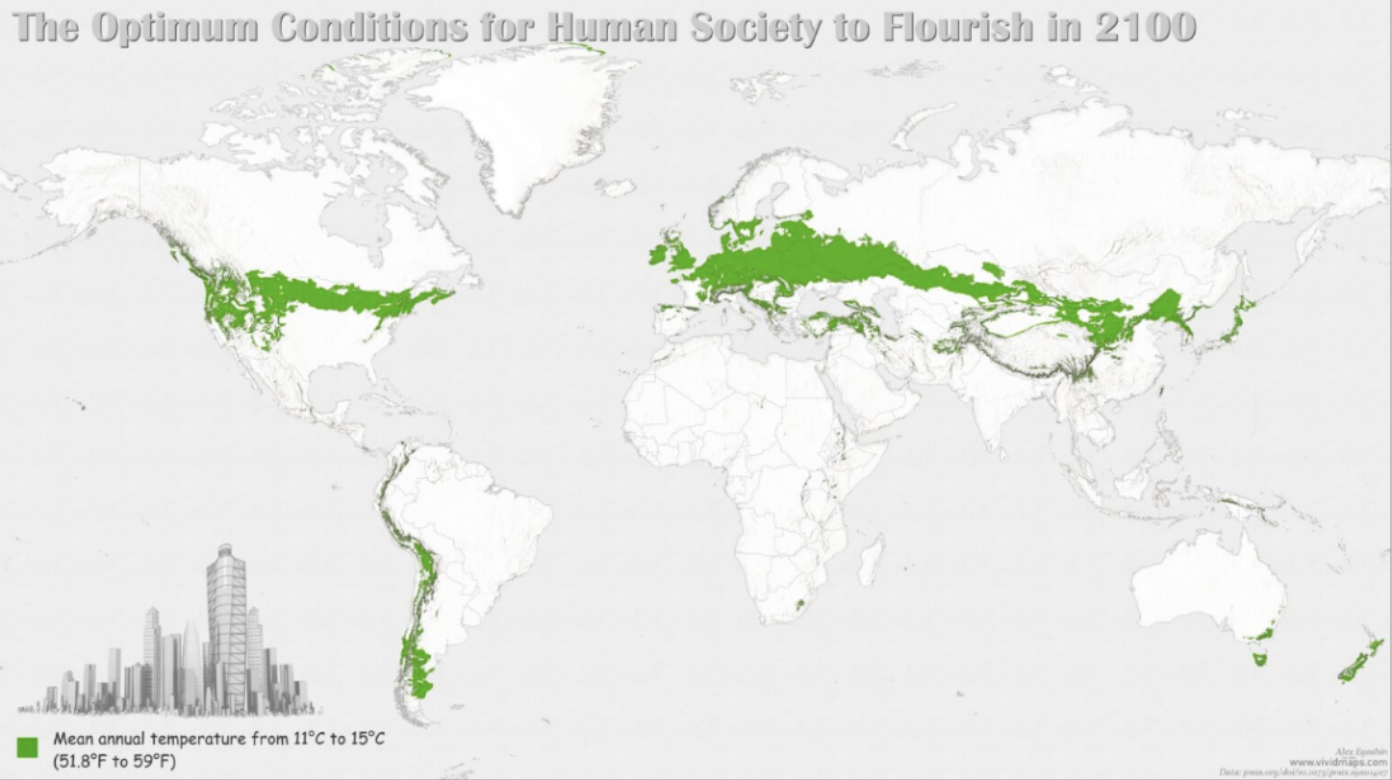The climatic niche: the new way to understand the climate crisis
ESA CCI Land Surface Temperature (1995-2020), version 2.0We are sensitive animals.
Climate change has already created areas of the world where heat and humidity are too severe for humans to tolerate.
We live and thrive in what is called a ‘climatic niche’. In scientific terms, this reflects the set of temperature and precipitation conditions where a species can occur. And this niche is incredibly concentrated to an annual average temperature of around 13 °C. These are the conditions in which all our economies have ever operated.
Yet global heating will push billions outside of the ‘human climate niche’. Scientists warn the world is on track for for 2.7°C above pre-industrial levels, which could lead to 1-3 billion people sitting ‘outside’ this niche over the next 50 years. By 2100 these will be the small parcels of land on which human society can flourish:
Scary stuff - well it certainly should be.
Empirical research has shown that extreme temperatures reduce labour productivity, damage crops and increase mortality, among other effects.
Already the number of weather-related disasters has increased five-fold since the 1970s, while the cost of damages has increased by a factor of eight. Heatwaves brought on by human-caused climate breakdown have cost the global economy about $16tn since the 1990s.
And how does this affect our productivity and economies? By 2100, global GDP could be 37% lower than it would be without the impacts of warming, when taking the effects of climate change on economic growth into account. With the Lancet climate commission showing more than 150 billion work hours were lost in 2018 due to extreme temperature and humidity. This could double or even quadruple depending on how many people stay working in rural agriculture.
Our comfortable and safe zone, of which our society has become accustomed to and often thrived within, will perish.
So, what needs to happen?
Well - lots of things...everything, everywhere, all at once.
I will leave it for another time and place to discuss things we can do. Or feel free to reach out and call us at MSQ/Sustain.
For now – if we position the crisis through the climatic niche, nation-states and corporation may understand what is at stake. Perhaps.


